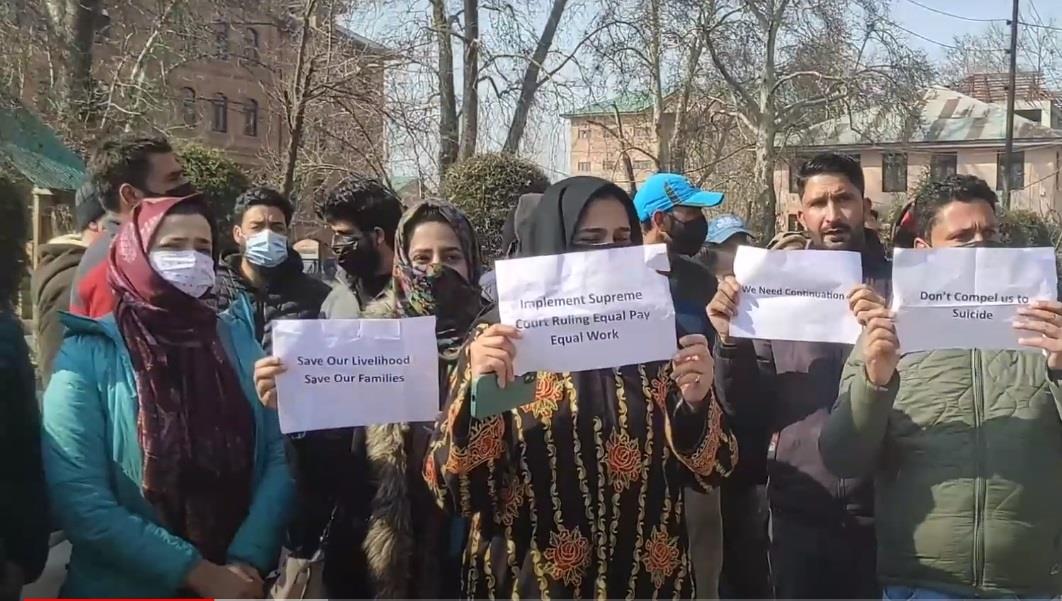The Academic Dalits Of Kashmir
File photo
By Dr. Ashraf Zainabi
Education and healthcare are supposed to be pathways to stability and hope in Jammu and Kashmir. Colleges and hospitals stand as symbols of progress in a region long marred by messy situation. But the reality is far grimmer.
Behind these institutions are thousands of teachers, doctors, and researchers working under temporary, insecure contracts. Their dedication keeps the system running, while their precarity defines it.
The Supreme Court of India recently reminded the nation that teachers are the“intellectual backbone of the country,” and that paying them a pittance amounts to dishonoring that role.
It emphasized that contractual appointees cannot remain second-class citizens.
This judicial clarity echoes a deeper truth: India's academic and healthcare systems depend on exploited, unprotected workers, whose suffering is the foundation of the very progress the country claims to pursue.
Dalits in India have historically been pushed to the margins, denied rights, opportunities, and dignity. Today's academic and healthcare contractual workforce forms a parallel category.
I call them“Academic Dalits.”
They are highly qualified individuals, often PhD holders, teaching full courses, mentoring students, and treating patients. Their presence is indispensable, but their status remains unstable.
The contrast is striking. India boasts about world-class institutions, global rankings, and technology-driven solutions. Politicians speak of“knowledge economy” and“health for all.” Yet across Jammu and Kashmir, the story is of unpaid or delayed salaries, semester-to-semester appointments, and ever-changing designations.
For over 25 years, these workers have seen their titles shift repeatedly. At times called“Academic Arrangements,” sometimes“Guest Faculty,” now perhaps“Academic Labourers.”
Every new college director introduces a new term and new criteria designed to limit hiring and spending.
Take the example of a young scholar in Kashmir with a freshly earned PhD. She teaches full undergraduate courses, helps research students, and supports departmental administration. Her salary may come to ₹25,000 a month, for 8 or 9 months in a year, often delayed by months.

Legal Disclaimer:
MENAFN provides the
information “as is” without warranty of any kind. We do not accept
any responsibility or liability for the accuracy, content, images,
videos, licenses, completeness, legality, or reliability of the information
contained in this article. If you have any complaints or copyright
issues related to this article, kindly contact the provider above.
Most popular stories
Market Research

- $MBG Token Supply Reduced By 4.86M In First Buyback And Burn By Multibank Group
- PLPC-DBTM: Non-Cellular Oncology Immunotherapy With STIPNAM Traceability, Entering A Global Acquisition Window.
- United States Acetic Acid Market Size, Growth & Forecast 2033
- Kucoin Presents Kumining: Embodying Simple Mining, Smart Gains For Effortless Crypto Accumulation
- Japan Well Intervention Market Size To Reach USD 776.0 Million By 2033 CAGR Of 4.50%
- BTCC Announces Participation In Token2049 Singapore 2025, Showcasing NBA Collaboration With Jaren Jackson Jr.






















Comments
No comment